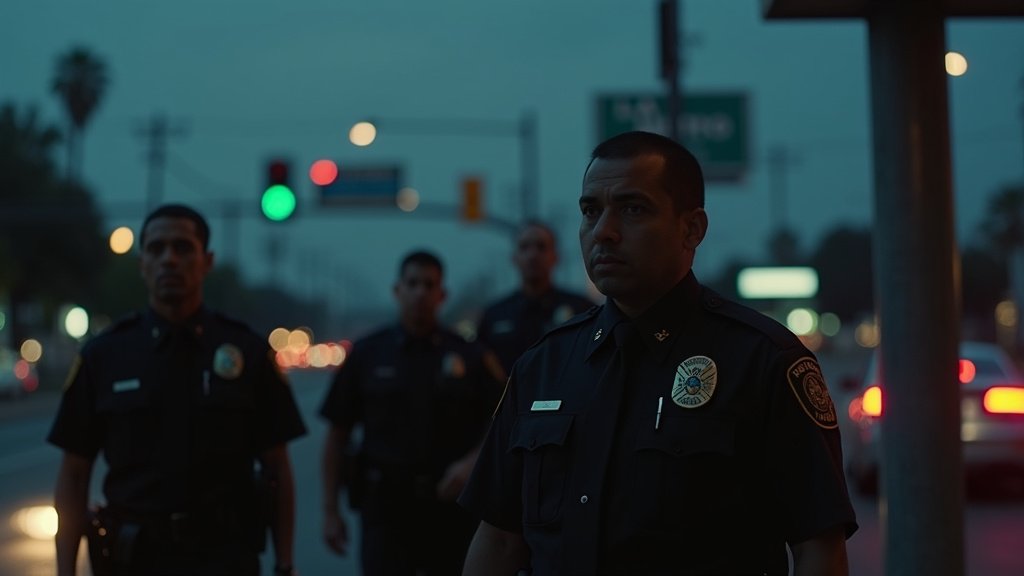The U.S. Supreme Court has lifted temporary restrictions that had placed limits on immigration enforcement operations in Los Angeles, allowing federal agents to resume stops and detentions based on factors such as a person’s appearance, language, and location. This pivotal ruling, delivered by the Court’s conservative majority in a 6-3 decision, effectively grants the Trump administration’s request to stay a lower court’s order, which had sought to prevent indiscriminate immigration sweeps. Critics, including prominent California political leaders and immigrant advocacy groups, have fiercely condemned the decision, warning it signals a green light for racial profiling and will instill widespread fear within communities.
Supreme Court Reverses Lower Court Order on Immigration Stops
The Supreme Court’s decision on Monday temporarily halts a restraining order issued earlier by U.S. District Judge Maame Ewusi-Mensah Frimpong. That order, previously upheld by an appeals court, had barred Immigration and Customs Enforcement (ICE) agents from stopping individuals without reasonable suspicion, and specifically prohibited them from relying solely on four factors—alone or in combination: apparent race or ethnicity, speaking Spanish or accented English, presence in certain locations like bus stops or car washes, or the type of work a person does. The Supreme Court majority offered no explicit reasoning for its decision, a common practice for rulings on the Court’s emergency docket, though Justice Brett Kavanaugh, in a concurring opinion, suggested that race could be considered a “relevant factor” when combined with other elements like location and occupation.
Background of the Legal Challenge
The legal battle originated from a lawsuit filed by the ACLU and other immigrant advocacy groups, who accused the Trump administration of systematically targeting brown-skinned individuals during aggressive immigration sweeps across the Los Angeles area. Plaintiffs, including U.S. citizens, alleged they were detained without justification based on their appearance or language. The restraining order was intended to protect against such alleged Fourth Amendment violations. However, the Trump administration appealed, arguing that the order significantly hampered its ability to enforce immigration laws, particularly in a region with a substantial undocumented population. The administration celebrated the Supreme Court’s reversal as a “massive victory” for immigration enforcement.
Outrage from California Leaders and Advocates
The ruling has drawn sharp criticism from California’s top officials. Los Angeles Mayor Karen Bass denounced the decision as “dangerous” and “un-American,” stating it was “an attack on every person in every city in this country.” She directed city departments to adhere to existing rules barring the use of municipal resources for federal immigration enforcement. California Governor Gavin Newsom was equally forceful in his condemnation, declaring that the “Trump’s hand-picked Supreme Court majority just became the Grand Marshal for a parade of racial terror in Los Angeles.” Immigrant rights organizations have echoed these sentiments, with many warning that the decision effectively legalizes racial profiling and will lead to increased fear and distrust.
Impact on Los Angeles Communities and Businesses
In Los Angeles County, where approximately one in three residents is foreign-born, the prospect of intensified raids has stoked significant anxiety. Advocates fear that agents may become more aggressive, potentially leading to further wrongful detentions of U.S. citizens and lawful residents. Past raids have already caused considerable disruption, with businesses reporting a sharp decline in foot traffic and sales, particularly in immigrant-heavy commercial areas like the Fashion District and produce markets. Some business owners have described an atmosphere of fear that paralyzes daily life, keeping customers away and employees hesitant to come to work. ICE has vowed to “FLOOD THE ZONE in Los Angeles,” signaling an anticipated ramp-up in enforcement activities across the region.
A Divided Nation and Uncertain Future
The Supreme Court’s decision is viewed by many as a significant setback for civil liberties and immigrant rights, potentially setting a precedent for broader enforcement tactics nationwide. While the lawsuit will continue in lower courts, with a hearing for a preliminary injunction scheduled for September 24, the immediate impact is a lifting of restrictions on federal agents. The ruling underscores a deep division regarding immigration enforcement and the interpretation of constitutional protections, leaving many communities in Los Angeles and beyond bracing for a period of heightened uncertainty and fear.
Keywords Used: Spotlight, Los, Angeles, News





